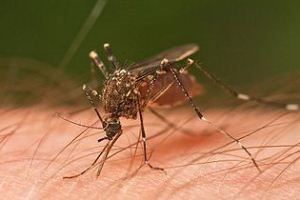statFor some women, it's about making an elegantement at special events or being a couple…

Essential Facts About West Nile Virus
 West Nile virus (WNV) is a mosquito-borne disease that has become an increasing problem since it first appeared in the United States in 1999. Over 30,000 people have reportedly become ill with the virus, and outbreaks are becoming more frequent.
West Nile virus (WNV) is a mosquito-borne disease that has become an increasing problem since it first appeared in the United States in 1999. Over 30,000 people have reportedly become ill with the virus, and outbreaks are becoming more frequent.
The US Centers for Disease Control and Prevention have classified WNV as a seasonal illness that tends to flare up in the warm summer months (when mosquitoes are most prevalent) and continues into autumn. It is a serious illness that can lead to death if not properly treated. Following are some essential facts about West Nile virus so you know what to look for and how best to avoid it.
Symptoms of West Nile virus:
- About 4 out of 5 people (80 percent) infected with WNV will show no symptoms at all.
- As many as 20 percent of those infected with WNV will experience flu-like symptoms, such as headache, fever, muscle aches, nausea and vomiting. They may also develop swollen lymph glands and a rash on the back, chest and stomach. Symptoms may persist from only a few days to several weeks, even in those who are normally healthy.
- A few people (approximately 1 in 150) will develop a more serious illness that may be life-threatening. Symptoms may include high fever, headache, disorientation, stiff neck, muscle weakness, tremors, convulsions, loss of vision, numbness, paralysis and coma. The symptoms can last for several weeks, often with permanent neurological damage.
- Symptoms develop from 3 to 14 days after being bitten by an infected mosquito.
Risk of becoming ill from WNV:
- People over age 50 are at greater risk of becoming seriously ill from WNV and should be sure to take extra precautions when outdoors.
- Those who work or spend a lot of leisure time outdoors are at greater risk of contracting WNV.
- There is a very small risk of contracting WNV through a blood transfusion or organ transplant, but the risk is negligible.
- There is no risk of getting WNV through casual contact, such as touching or kissing someone who has the virus.
Prevention of WNV:
- Preventing mosquito bites is the best way of avoiding West Nile virus. Some areas of the country have implemented programs for mosquito control to help keep the number of mosquitoes to a minimum.
- Check to ensure that the screens on your doors and windows are in good shape and adequate to keep mosquitoes out of your house.
- At dawn and dusk, when mosquitoes are most active, be sure to wear long sleeved shirts and pants and use an effective mosquito repellent.
- Remove as many areas of standing water as possible, which is where mosquitoes breed. Empty out any standing water in the bottoms of flowerpots or in buckets and barrels, and change the water in pet dishes and birdbaths often.




